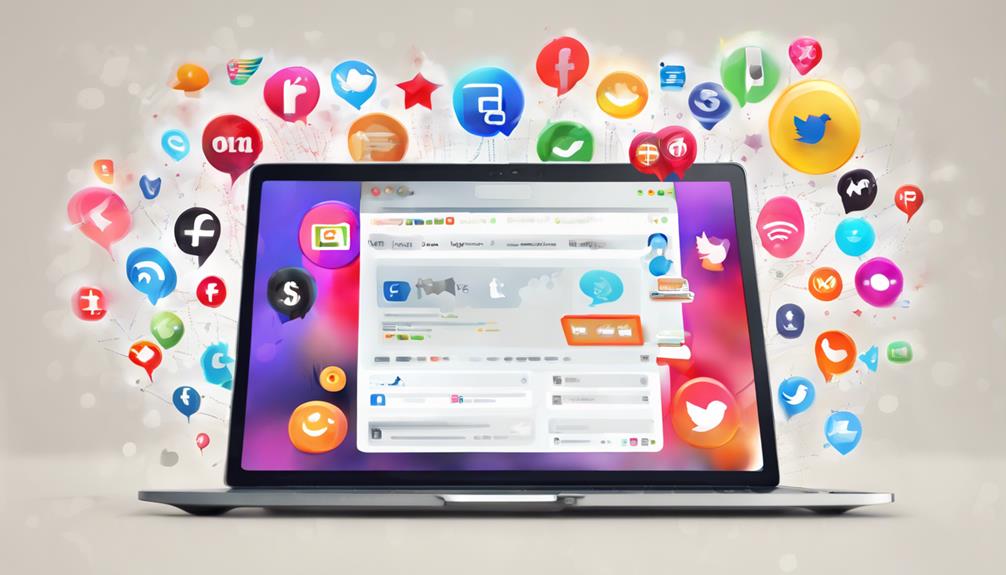Online shaming happens because of group behavior, online anonymity, and quick emotional reactions. When others condemn, you may feel pressured to join, seeking social validation and a sense of moral righteousness. This often leads to unfair targeting and hurtful judgments. To fight back, pause before reacting, question whether the situation truly warrants outrage, and remember the power of compassion. Understanding these psychological drivers helps you resist harmful mob mentality—there’s more insight worth exploring if you go further.
Key Takeaways
- Online shaming is driven by collective outrage, anonymity, and emotional reactions, often escalating quickly without full context.
- Mob mentality fuels moral outrage, as individuals seek validation and moral superiority through participation.
- Participants may act impulsively, dehumanizing others and damaging reputations over misunderstandings or minor offenses.
- Recognizing the influence of mob dynamics helps in resisting participation and avoiding contributing to harm.
- Cultivating mindfulness, pausing before reacting, and fostering compassion can reduce the impact of online shaming behavior.

Online shaming has become a powerful social phenomenon, fueled by the rapid spread of information and the anonymity the internet provides. When you witness someone being publicly criticized or canceled, it’s often driven by a sense of digital mob mentality. This collective behavior amplifies the outrage, creating a tidal wave of moral outrage that quickly spirals out of control. You might notice how a single comment or mistake can snowball into a massive online storm, with hundreds or thousands jumping in to condemn the individual involved. The online environment encourages this kind of behavior because it feels immediate and impactful, even if it’s emotionally charged and sometimes unjustified.
What fuels this digital mob mentality is the desire for social validation. When you see others piling on, you’re often inclined to join in, especially if you share the same moral outrage. It’s a way to affirm your values and demonstrate your alignment with the community’s standards. But this rush to judgment can lead to hasty condemnations, sometimes based on incomplete or misunderstood information. The anonymity of the internet makes it easier to express outrage without facing real-world consequences, which intensifies the emotional reactions and encourages more extreme opinions. You might feel compelled to act out of a sense of moral superiority, believing you’re defending justice or morality. In reality, though, this often leads to unfair targeting and the destruction of reputations over minor or misunderstood offenses.
The psychology behind online shaming reveals that it’s not just about the individual’s mistake; it’s deeply rooted in collective emotions. People seek a sense of belonging and moral righteousness, and engaging in online shaming offers that. It’s a way to feel powerful, to impose a form of social order from behind the safety of a screen. But understanding this dynamic can help you recognize when you’re caught up in the cycle. Instead of fueling the outrage, you can pause and ask whether the person’s actions truly warrant such harsh judgment. Sometimes, what starts as moral outrage can escalate into cruelty, with little regard for context or growth. Recognizing the influence of digital mob mentality empowers you to resist the urge to participate blindly in online shaming, fostering a more thoughtful, compassionate approach to online interactions. Additionally, cultivating creative practice—such as mindful reflection or alternative outlets—can help you process these emotions more constructively rather than resorting to harmful behaviors.
Frequently Asked Questions
How Does Online Shaming Affect Mental Health Long-Term?
Online shaming can have serious long-term effects on your mental health, especially through cyberbullying impacts that lead to anxiety, depression, and lowered self-esteem. Over time, it weakens your emotional resilience, making it harder to cope with future challenges. If you experience persistent online shaming, it’s vital to seek support, set boundaries, and practice self-care to protect your mental well-being and rebuild your emotional strength.
What Role Does Anonymity Play in Online Shaming Behaviors?
Imagine you’re browsing social media, and someone posts harsh comments anonymously. Cyber anonymity often emboldens people to act without accountability, making online shaming more severe. When individuals hide behind anonymity, they feel less responsible for their words, fueling aggressive behaviors. Without online accountability, shame can escalate quickly. Anonymity therefore plays a significant role in encouraging harsh online shaming, highlighting the need for platforms to balance user privacy with responsibility.
Can Online Shaming Ever Lead to Positive Change?
Online shaming can sometimes lead to positive change when accountability shifts are embraced and constructive dialogue occurs. If you approach it thoughtfully, you can inspire others to reflect and improve. Instead of fueling negativity, use online platforms to promote understanding and growth. While it’s not always easy, fostering a respectful environment encourages learning, accountability, and ultimately, positive change for individuals and communities alike.
How Do Cultural Differences Influence Online Shaming Tactics?
Your mind might explode trying to grasp how cultural differences shape online shaming tactics. Cross-cultural perceptions vary wildly, making what’s acceptable in one country seem outrageous in another. Social norm variations mean some societies shame openly, while others favor subtlety or silence. These differences influence how people respond, making online shaming a complex web of cultural cues, where understanding local norms is key to maneuvering or challenging these digital behaviors effectively.
What Are Effective Strategies to Prevent Becoming a Target?
To prevent becoming a target, prioritize your privacy concerns by adjusting your social media settings and sharing less personal information. Build digital resilience by staying calm and avoiding retaliatory responses when faced with negativity. Think before you post, and consider the potential impact on your reputation. By protecting your privacy and cultivating resilience, you reduce vulnerability and make it harder for online shaming tactics to affect you.
Conclusion
Understanding the psychology behind online shaming reveals that it’s often fueled by our own need for validation and the desire to belong. But remember, as much as the digital world can feel like a battleground, you hold the power to break the cycle. Choose empathy over anger, kindness over judgment. Like a lighthouse guiding ships through storms, your compassion can illuminate a better path—reminding us all that even in darkness, light can prevail.









